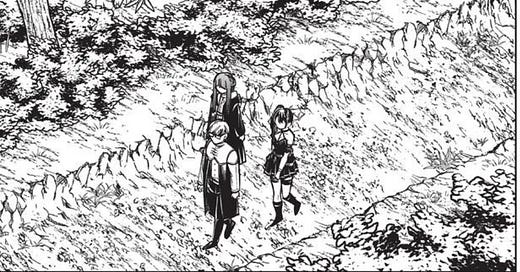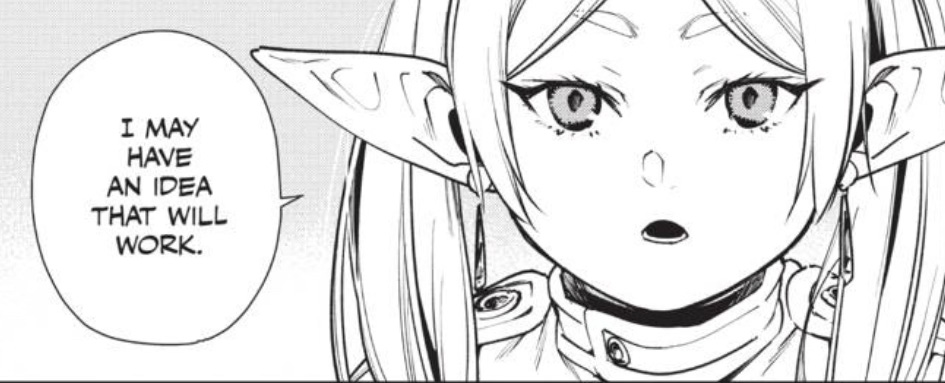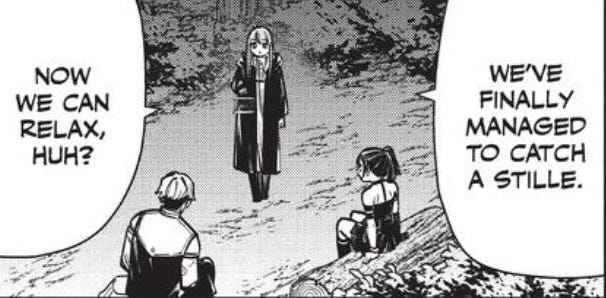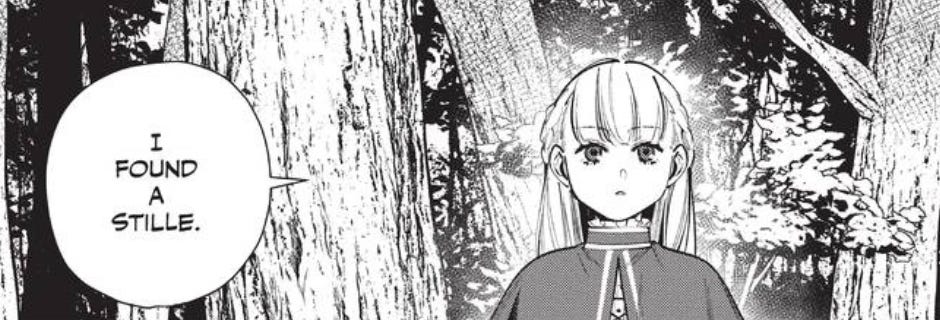Preface!
Sometimes, timing feels one step above coincidental. Today (as in, the day I’m writing this, which is probably a few weeks ago at this point), I saw the play McNeal, and while I’m still digesting the play, one of my biggest takeaways was from the very beginning. It opens with a beleaguered, alcoholic writer. That’s a trope so overdone I was immediately disappointed. It’s literally how like, 50% of “literary” stories begin.
But over time, The individuality of the play came out. Or maybe that was just my admiration for Robert Downey Jr., who played the lead. Whatever the case, what began as a trope became something more. It became an interrogation of what art is, what role AI can have in art (if any), how much we can separate the art from the artists, and what value truth really has when the truth is gruesome or unpleasant.
By the end of the show, I had forgotten all about my initial “oh gosh, another alcoholic writer” first impression.
Then again, it really could have just been Robert Downey Jr. He has that affect on me.
Preface over.
You’ve probably heard the notion that every story has already been told. Plenty of storytellers spin this notion in their own way, but Stanley Kubrick’s take on it is, in my opinion, the most encapsulating. He says, "Everything has already been done, every story has been told, every scene has been shot. It's our job to do it one better."
I appreciate his quote more than other similar ones because of the ending—it’s our job to do it better than it’s already been done. That’s a difficult notion, especially when you consider that what you’re writing has already been written. But it’s what you bring to it that makes it unique.
Again, this may not be a new concept to you. If it is new to you, well—surprise!
Before we get into Frieren: Beyond Journey’s End, here’s what you should know.
Frieren, an immortal elvish mage, has already saved the world with her party once, but being immortal, she has since lost the rest of her party to old age, and is forming a new party full of young and oftentimes silly companions. Including Fern, a human mage, and Stark, a childish human warrior and one of my favorite characters ever.
In the moment I’ll be writing about, Frieren and Fern both decide to take an exam to become higher ranking mages, in order to obtain a license to go into a more dangerous area on their journey. Up to this point, their journey has been thoroughly silly, completely unexpected, and perfectly balanced in tone.
And that’s it.
I have long been impressed by Frieren: Beyond Journey’s End and its ability to—cliche warning—march to the beat of its own drum. It is wholly its own thing, and confidently so. It’s the story after the story. It’s action without action, fantasy adventure without much grounding or specificity, and yet it works so well in setting a tone and sticking with that tone. And that tone is in the driver’s seat. Everything else—character, plot, adventure, magic—it’s all just along for the ride.
Naturally, when a magical competition entered into Frieren, I rose an eyebrow, maybe two. That’s one of the most common tropes in manga, and Frieren is going to use it? Frieren, which has ne’er a trope in sight?
I felt much like I felt at the start of McNeal. Oh look, here I am again, another magic competition.
It took very little time for me to snap out of it, because Frieren may have enacted one of the most common plot devices in manga, but it did it on its own terms. It maintained the tone it set throughout. It maintained the beat of its own cliched drum, and they did it all without Robert Downey Jr., which is remarkable.
Which got me to thinking about this notion that every story has been told, it’s just in the telling that it becomes unique. Hey, that’s pretty good, can I add it to the mountain of similar quotes?
In Frieren: Beyond Journey’s End’s magical competition, both Fern and Frieren are in the field, sorted into different groups. They are tasked with catching a stille, a magical bird that is remarkably difficult to capture, and only groups who can accomplish this move on. Pretty standard. Nothing extraordinary in the set-up.
Almost immediately, Fern has a bird in her cage. How did she get it? We don’t know. But that’s the thing—it’s funny. We just saw Frieren’s group struggling massively to restrain a stille, and then Fern has one immediately and we don’t even see how. That wouldn’t work in any other story with a magical competition—and there are a lot, in case I haven’t made that abundantly clear.
But in Frieren: Beyond Journey’s End, it works, because that’s just how this story is told. It’s funny. Light-hearted. Purposefully inexact, but since it has spent all of its time rocking exactly that brand, it fits right in when we see it again here. It still engages in familiar tropes. And just in case you are worried about logic, they half-ass an explanation later that, personally, I felt added to the humor. Like they were doubling down on the trope they knew they were poking at.
Tropes, as storytellers, are difficult to engage with, because you really only have three options—make it better than it has been elsewhere, or make fun of it. The third option is coming in a second, just hold tight. Anything else, and you become predictable, formulaic, bland etc. One trope I am entirely sick of is the lazy character trope. Every. Single. Manga has a character who complains, usually with sayings like “what a pain,” and it immediately makes that character monotonous.
It feels sacrilegious to say this, but this is why I immediately stalled out on Nagi, from Blue Lock. He is working his way back into my good graces, but it has taken a lot of work.
And why is that? Because when you engage in a trope, the reader/viewer is immediately bringing with them everything they know about this trope. We’re prefilling the character dossier, predicting the magical competition, etc. It leaves readers susceptible to surprises, but the longer you don’t provide one, the longer that character or event is boring.
That said, tropes exist for a reason, and that reason is because they are familiar, and fans enjoy them. I mean, a locked-door murder mystery will never not be exciting, right? It’s just in the way you dress it up.
Frieren: Beyond Journey’s End dresses it up in the way only it can. Not necessarily making fun of the trope, and not even necessarily making it better, but by staying true to itself in the face of the trope. Not going basic and predictable. The way I see it, rather than Frieren going into the magical competition trope, they instead brought the trope into Frieren.
And that there is the third way a trope can be useful to a story. By bringing the trope into the brand of the story itself. I actually don’t feel bad criticizing Blue Lock in this context because I celebrate Blue Lock for essentially every other feasible concept and then some. Nagi—who, again, is growing on me—is a standard lazy character trope. And please, if you disagree, say so, I’d love to be proven wrong. Seriously, give me one more thing to celebrate about Blue Lock.
What was stopping Nagi from being slightly unexpected as a lazy character? As it stands, he’s exactly like Gen from Kaiju No. 8. Naturally gifted. Video gamer. Lazy. Seriously, if you want more lazy characters, there’s a whole database, but just trust me, Nagi isn’t unique.
The point being, had Frieren just had a standard magic competition with the natural tension that comes with it, a hearty and spirited battle for top spot, that would have been highly disappointing, it wouldn’t have stood out at all, it would have been incredibly blah. And if there is one thing Frieren never is, it’s blah.
Unless it means to be, of course.
Hey, creatives—surely your story has some tropes. Doesn’t have to be a magical competition or a lazy character, but maybe an enemies-to-lovers romance, a mentor figure, whatever. Pick one of your tropes and let’s look at ways to freshen it up. Start by identifying some of the aspects that re unique to your story—what are its strong points? Now let’s superimpose those strong points on your trope.
That may sound too general, so let me give you an example. Let’s say you just have to have an alcoholic writer. But maybe you want the story to not get too dark, to stay pretty fun and bouncy. Rather than a writer who spirals into a dark destruction, how about reversing that entirely and showing how it’s his alcoholism that makes him a great writer?
Hey, fans of Frieren—what other tropes do you see this series remastering? I’m sure it’s not just the magical competition.








I actually love the lazy character trope. As a general rule of thumb, I find that the more laidback a manga character is, the more capable they really are (Shunsui from Bleach,Shikamaru from Naruto). It's always fun when they stop holding back and actually put in some effort.
Thanks for another great newsletter! You sold me on Frieren after outlining the premise, I love stories that deal with “the adventure after the adventure.” 😄